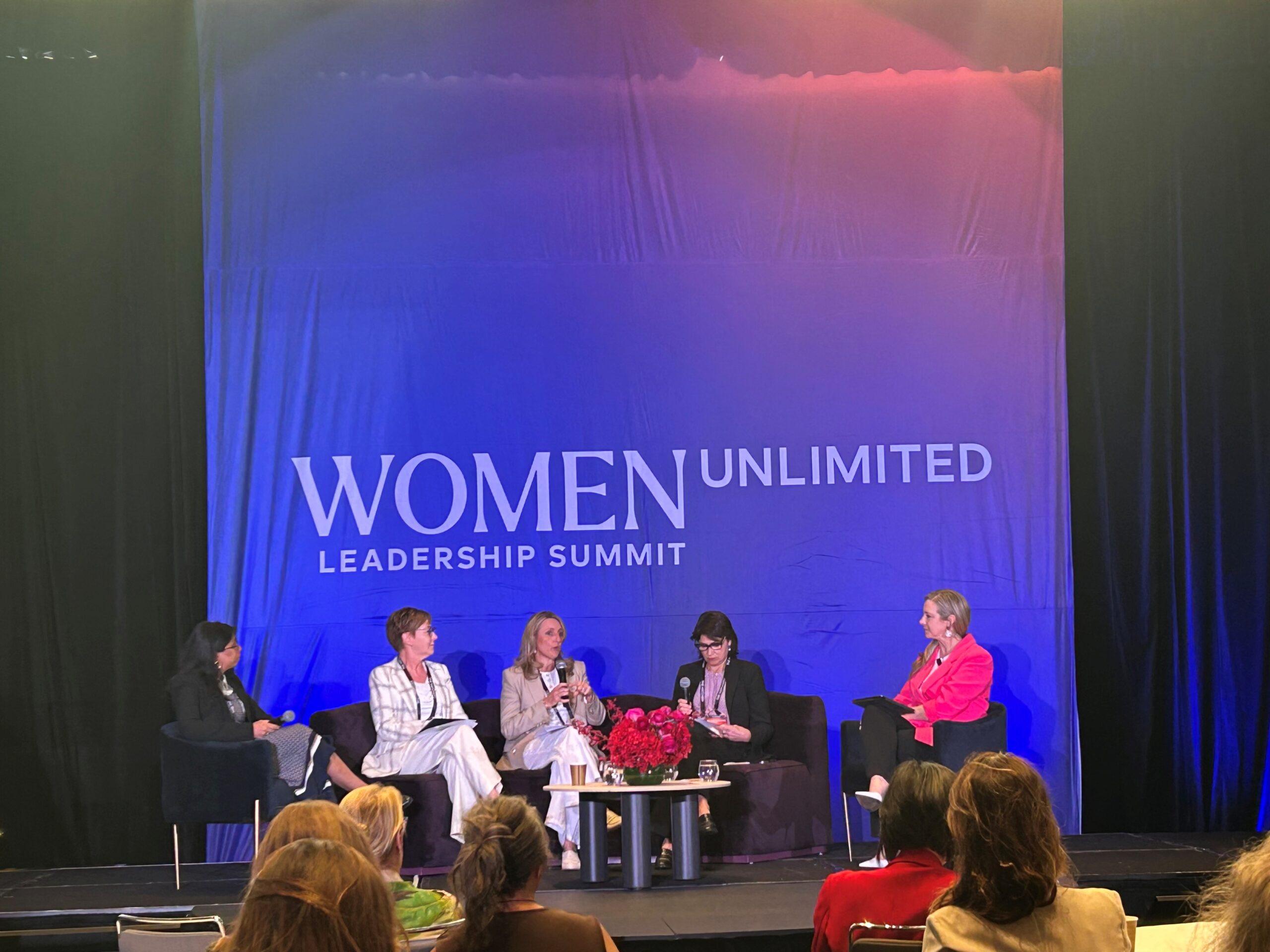
“If every leader here did just one thing this month, being National Carer’s Week, I would ask them to make caregiving visible. Publicly encourage use of flexible or carer leave options – and share real examples of men who have done so without penalty. That visibility changes the norm.”
Emma Walsh
CEO, Parents At Work
At the Public Sector Women UNLIMITED Summit in Sydney this week, Emma Walsh challenged leaders to rethink the value we place on work and care; urging workplaces to go further in normalising caregiving as something all employees – not just women – are expected and supported to do. Not just because it’s good for employees and their families, but as a critical lever to remove barriers to gender equality and to fuel productivity.
Walsh spoke to the importance of measuring equity through the real lived experience of employees – the extent to which they can thrive at work and at home, without having to trade opportunities or ambition for caregiving responsibilities being key.
Beyond statistics: the real face of equity
Despite progress, Australia’s gendered relationship between work and care remains skewed:
These statistics reveal juggling work and care remain a burden woman are still baring and it’s costing them – and our economy – dearly. To improve, it requires rethinking how we design jobs, normalise flexibility, and ensuring taking leave doesn’t undermine career progression.
Shared Care: A Social Issue or an Economic Necessity?
Walsh positioned shared caregiving as a national productivity strategy, not just a family policy. “When caregiving falls disproportionately to women, the economy suffers,” she warned.
The impact is clear:
“Conversely, when men take parental leave and embrace flexible work, we normalise caregiving and that helps protect and advance women’s careers”. Walsh explains.
International benchmarks prove this point: in countries like Sweden and Canada, higher male parental leave uptake correlates directly with stronger female workforce participation and economic growth.
Yet in Australia, the National Working Families Report revealed 48% of men take less than one month of parental leave – and almost half don’t feel supported to take leave at all. This entrenches caregiving as “women’s work,” undermining both equity and productivity.
Shifting Workplace Culture: The Power of Removing labels
Walsh emphasised that policies open doors, but culture determines whether people walk through them.
“Removing labels such as ‘primary’ and ‘secondary’ carer is a transformative step toward genuine inclusion and equity at work”. Walsh explains.
“When governments lead by eliminating these distinctions, they send a clear signal that societal norms are evolving, moving away from rigid, traditional gender roles and expectations – this leadership sets a powerful precedent for all sectors.”
Ultimately, this shift is about creating a culture where caregiving is recognised as a shared human experience and aligns with broader goals of social impact by promoting equality, reducing bias, and supporting diverse family structures – paving the way for a more inclusive society.
Including men in the conversation for meaningful progress
Walsh emphasised that when men actively participate in caregiving and family responsibilities, it transforms the narrative from a “women’s issue” to a shared responsibility that benefits everyone.
Men’s involvement helps break down traditional gender norms, promotes balanced family dynamics, and allows both men and women to thrive personally and professionally. Fathers and partners who embrace shared care often report greater life satisfaction, reduced stress, and closer bonds with their children and partners.
By including men in these conversations we create role models and ensure that policies and practices supporting shared care are sustainable and impactful.
The Power of Visibility
To unlock genuine gender equity and stronger productivity, workplaces must move beyond policy and actively reshape culture. That means normalising caregiving for everyone – and making it visible from the top down
Leaders must make caregiving visible.
Walsh’s call to action was simple yet powerful:
“If every leader here did just one thing this month, being National Carer’s Week, I would ask them to make caregiving visible. Publicly encourage use of flexible or carer leave options – and share real examples of men who have done so without penalty. That visibility changes the norm.”
For Walsh, the equation is clear: “Normalising shared care isn’t just good for families, it’s critical to our nation’s economic future.”


